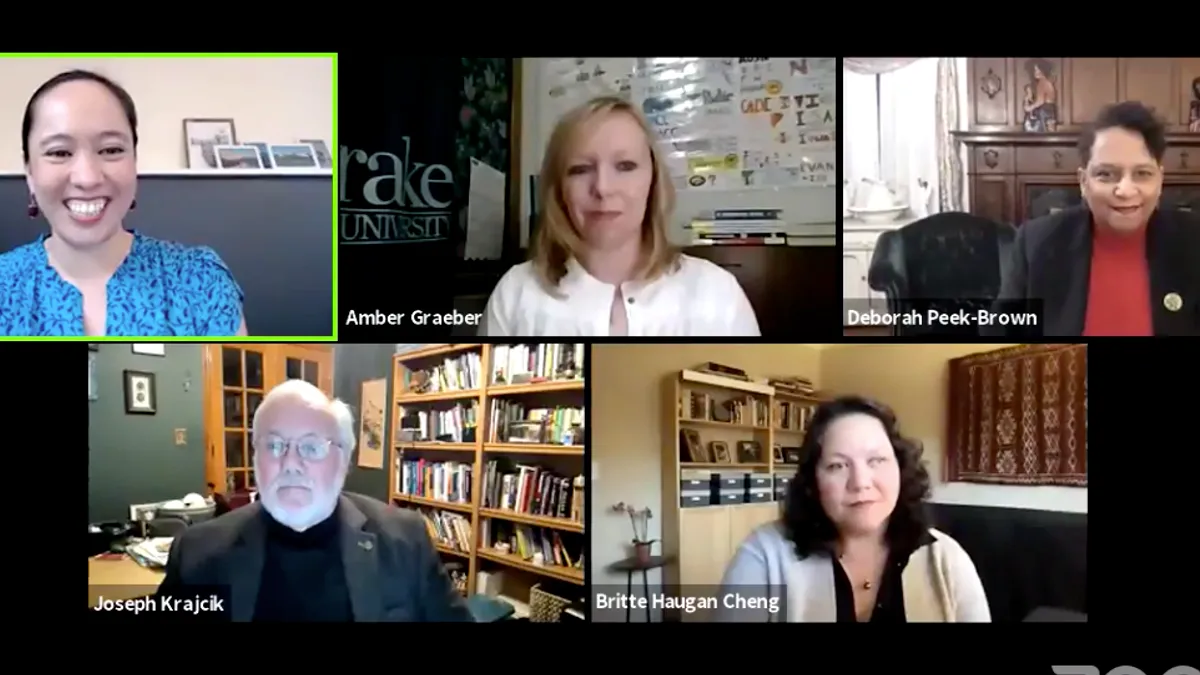Dive Brief:
-
Four independent research studies released this week show project-based learning strengthened student engagement, improved learning and retention of information, increased achievement across subject matters, and had positive impacts on students from a variety of backgrounds.
-
The research, which was mostly done through randomized controlled trials and conducted before the pandemic, validates anecdotal evidence that PBL approaches have many benefits for rigorous and equitable student learning, say researchers and educators who participated in a Monday virtual event hosted by Edutopia and Lucas Education Research.
-
Although it is not easy, teachers are continuing to use PBL strategies creatively through online instruction by encouraging students to think deeper about lessons by asking probing questions and solving problems collaboratively, said event participant Deborah Peek-Brown, an education outreach specialist at Michigan State University.
Dive Insight:
The four research studies from separate universities cover a variety of grade levels and content subjects but collectively found increases in academic achievement when students had exposure to lessons using PBL approaches.
For example, a study from the University of Michigan and Michigan State University found 3rd-graders in PBL classrooms scored 8 percentage points higher than students in traditional classrooms on a state science test. The academic achievements were made regardless of students’ race, gender, socioeconomic status or reading ability. The study included 2,371 3rd-grade students in 46 schools. The schools selected for the study included students from diverse backgrounds: 62% of the schools’ students qualified for free or reduced-price lunch, and 58% were students of color.
Joseph Krajcik, the professor of science education at Michigan State, said during the Edutopia event the study showed one of the PBL principles, which is to engage students in rigorous lessons that try to make sense of a problem meaningful to them, is an effective and proven approach.
“We now have really rich evidence that says that really works,” Krajcik said. “And we never had that before. Before it was a gut feeling.”
Additionally, the research shows PBL not only helps kids learn, but is actually better than more traditional instruction, Krajcik said.
Amber Graeber, an instructional coach in Des Moines Public Schools in Iowa, said PBL has changed her role as a teacher from a director of instruction to a facilitator of student learning. She also said it's a fun way to teach that engages students. She described the PBL approach as making a lesson’s project the center of instruction, not just the activity done at the end of the lesson.
“We really need to put students in the driver's seat and make them active participants in the classroom,” she said. “Let them dig. Let them investigate and explore.”
Remote instruction and learning has made PBL approaches more difficult, but they are possible. Peek-Brown gave an example of one teacher who told her class she was their virtual robot and challenged the students to direct her using the materials in front of her camera. Other teachers use a “chat blast” to encourage all students to put their ideas into the online chat feature, and then the teacher counts down for all students to submit their thoughts at the same time.
“The teachers that we are working with are committed to making the experience for students that we know works, the features of project based learning that we know work, to continue those in a virtual space,” Peek-Brown said.






 Dive Awards
Dive Awards








